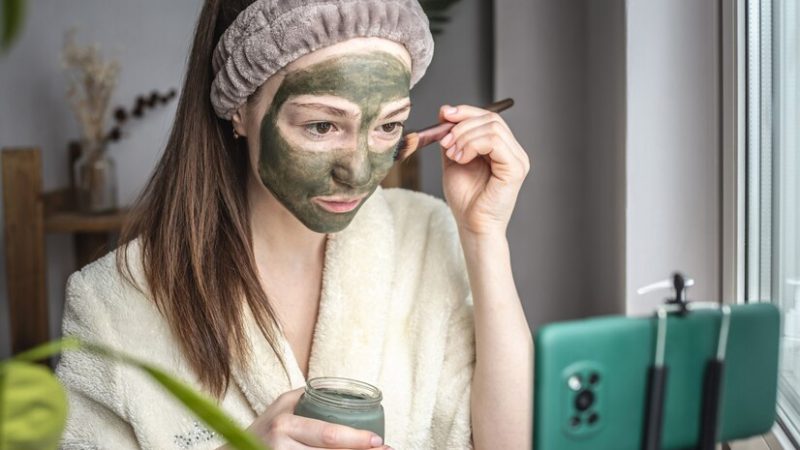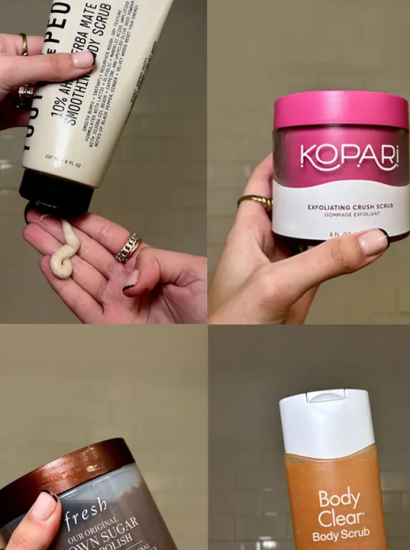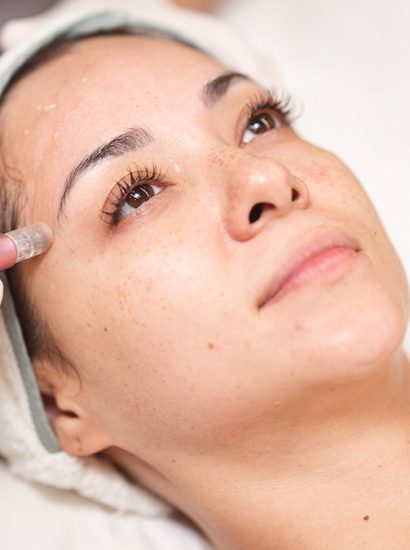When it comes to skincare, face masks are the ultimate indulgence. Whether you’re looking to brighten, hydrate, or detoxify, there’s a face mask for every need and every skin type. However, not all masks are created equal, and the key to achieving the best results lies in choosing the right one for your specific skin concerns.
Understanding Skin Types
Before diving into specific face masks, it’s essential to understand your skin type. Here are the most common types:
Normal Skin:
Well-balanced skin with no major concerns, such as dryness or oiliness. It’s smooth, with small pores and an even complexion.
Dry Skin:
Lacks moisture and often feels tight, flaky, or rough. Dry skin needs hydration and nourishment to restore its natural barrier.
Oily Skin:
Characterized by excess sebum production, leading to shine, enlarged pores, and acne. Oily skin benefits from masks that balance oil and cleanse deeply.
Combination Skin:
Features both oily and dry areas, typically with an oily T-zone (forehead, nose, and chin) and drier cheeks. Combination skin needs a balanced approach with multi-masking.
Sensitive Skin:
Easily irritated by products or environmental factors. Sensitive skin requires gentle, soothing formulas that won’t cause inflammation.
Best Face Masks for Normal Skin
While normal skin is generally low-maintenance, it still benefits from regular masking to maintain its balance and radiance. Look for masks that provide a gentle boost of hydration, radiance, or exfoliation.
Hydrating Gel Masks
Gel masks are lightweight, refreshing, and perfect for normal skin. They typically contain hydrating ingredients like aloe vera, hyaluronic acid, and cucumber extract, which keep the skin plump and smooth without overwhelming it.
Key Ingredients:
Aloe vera, hyaluronic acid, cucumber extract, glycerin.
Brightening Masks
For an occasional glow boost, brightening masks containing vitamin C, fruit enzymes, or licorice root extract are excellent. These masks help even out skin tone and bring out a natural radiance.
Key Ingredients:
Vitamin C, fruit enzymes (papaya, pineapple), licorice root extract.
Gentle Exfoliating Masks
Exfoliating masks with mild fruit acids or enzymes can help remove dead skin cells, revealing a smoother and brighter complexion. Since normal skin is already balanced, it’s best to use exfoliating masks sparingly to avoid over-exfoliation.
Key Ingredients:
Lactic acid, glycolic acid, fruit enzymes.
Best Face Masks for Dry Skin
Dry skin craves moisture, and face masks can be a powerful way to deliver intense hydration and nourishment. Look for masks that deeply moisturize and repair the skin barrier.
Cream Masks
Cream masks are rich and emollient, providing deep hydration to parched skin. These masks are ideal for restoring the skin’s moisture levels and strengthening its natural barrier, which helps protect against environmental stressors.
Key Ingredients:
Shea butter, ceramides, squalene, hyaluronic acid.
Sleeping Masks
Sleeping masks are leave-on treatments that work overnight to lock in moisture. These masks are typically packed with hydrating and reparative ingredients that replenish dry skin while you sleep.
Key Ingredients:
Glycerin, hyaluronic acid, niacinamide, peptides.
Nourishing Oil Masks
Oil-based masks are excellent for dry skin as they provide an extra dose of nourishment. They are often infused with plant oils that replenish the skin’s lipid barrier, making the skin feel soft and supple.
Key Ingredients:
Jojoba oil, avocado oil, argan oil, rosehip oil.
Best Face Masks for Oily Skin
Oily skin requires products that can manage excess sebum without stripping the skin of its natural moisture. Face masks that detoxify and control oil are the best option.
Clay Masks
Clay masks are a staple for oily skin, as they absorb excess oil and draw out impurities from the pores. These masks leave the skin feeling clean, matte, and refreshed.
Key Ingredients:
Kaolin clay, bentonite clay, charcoal.
Charcoal Masks
Activated charcoal is known for its ability to attract and bind to impurities, making charcoal masks perfect for detoxifying oily and acne-prone skin. These masks can help unclog pores and prevent breakouts.
Key Ingredients:
Activated charcoal, salicylic acid, tea tree oil.
Exfoliating Masks
Oily skin benefits from regular exfoliation to prevent clogged pores and breakouts. Exfoliating masks containing beta hydroxy acids (BHAs) such as salicylic acid can gently dissolve excess oil and dead skin cells.
Key Ingredients:
Salicylic acid, glycolic acid, lactic acid.
Best Face Masks for Combination Skin
Combination skin needs a customized approach, as different areas of the face require different treatments. Multi-masking using different masks for different areas of the face—is an effective strategy.
Multi-Masking
For combination skin, you can apply a clay mask to the oily areas (such as the T-zone) and a hydrating or soothing mask to the dry areas (cheeks). This tailored approach addresses each skin concern simultaneously.
Key Ingredients:
Clay for the T-zone, aloe vera, hyaluronic acid, and shea butter for dry areas.
Balancing Masks
Balancing masks are designed to regulate oil production while providing hydration to dry areas. These masks contain ingredients that help normalize sebum production without stripping the skin.
Key Ingredients:
Green tea, niacinamide, honey, hyaluronic acid.
Antioxidant Masks
For overall skin health, antioxidant-rich masks can help protect combination skin from environmental damage and balance oil production. Ingredients like green tea and vitamin E are great for soothing and protecting the skin.
Key Ingredients:
Green tea extract, vitamin E, resveratrol.
Best Face Masks for Sensitive Skin
Sensitive skin can be tricky to care for, as it’s prone to irritation. Masks that are soothing, calming, and free from harsh chemicals are the best options for sensitive skin.
Calming Masks
Calming masks are formulated to reduce redness and inflammation, making them perfect for sensitive skin. Look for masks with soothing ingredients like chamomile and oatmeal.
Key Ingredients:
Chamomile, aloe vera, oatmeal, calendula.
Hydrating Sheet Masks
Sheet masks with gentle, hydrating ingredients are ideal for sensitive skin. They provide a soothing burst of hydration without irritating the skin.
Key Ingredients:
Hyaluronic acid, cucumber extract, aloe vera, glycerin.
Anti-Redness Masks
If your sensitive skin is prone to redness, anti-redness masks can help calm and soothe inflamed skin. These masks often contain ingredients like centella asiatica and licorice root extract.
Key Ingredients:
Centella asiatica, licorice root extract, calendula.
How to Choose the Right Face Mask for Your Skin Type
When choosing a face mask, it’s crucial to consider your skin’s current needs. While you may have a specific skin type, factors like weather, stress, and hormones can affect your skin’s condition.
For Dry Skin:
Focus on hydrating and nourishing masks, especially during colder months.
For Oily Skin:
Use clay or charcoal masks once or twice a week to control oil and prevent breakouts.
For Combination Skin:
Experiment with multi-masking or balancing masks to address both dry and oily areas.
For Sensitive Skin:
Stick to gentle, calming masks with minimal ingredients to avoid irritation.
Conclusion
Face masks are a versatile and indulgent addition to any skincare routine. By understanding your skin type and selecting the right mask, you can address specific concerns, whether it’s hydration, oil control, or soothing irritation. Incorporating masks into your routine can help enhance your skin’s health and appearance, leaving you with a radiant and rejuvenated complexion.
FAQs
How often should I use a face mask?
It depends on the mask and your skin type. For hydrating masks, you can use them 2-3 times a week, while exfoliating or clay masks should be limited to once or twice a week to avoid over-drying or irritating the skin.
Can I use a face mask overnight?
Yes, sleeping masks are designed to be left on overnight to provide intense hydration and repair while you sleep. Be sure to follow the instructions for other types of masks, as some may not be suitable for overnight use.
Should I apply a face mask before or after moisturizer?
Apply your face mask after cleansing and before moisturizer. Masks are meant to treat the skin, and moisturizing after helps lock in the benefits.
Can I mix different face masks together?
Yes, multi-masking is a great way to address different skin concerns on different areas of your face. For example, you can use a clay mask on your oily T-zone and a hydrating mask on your dry cheeks.
Are face masks suitable for all skin types?
There are face masks formulated for every skin type. The key is to choose a mask with ingredients that cater to your specific skin needs
Also read: Bikini Line: 10 Common Mistakes to Avoid During Hair Removal





